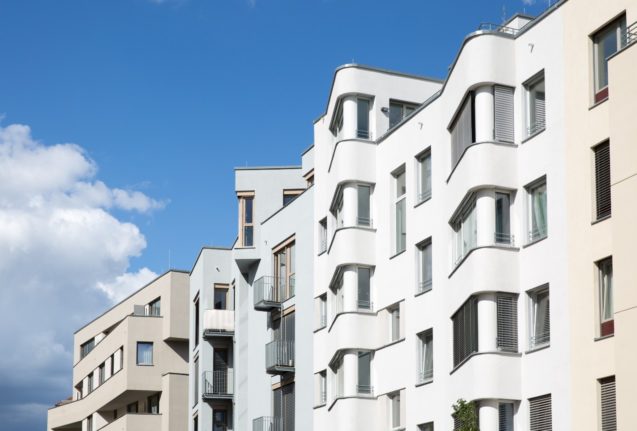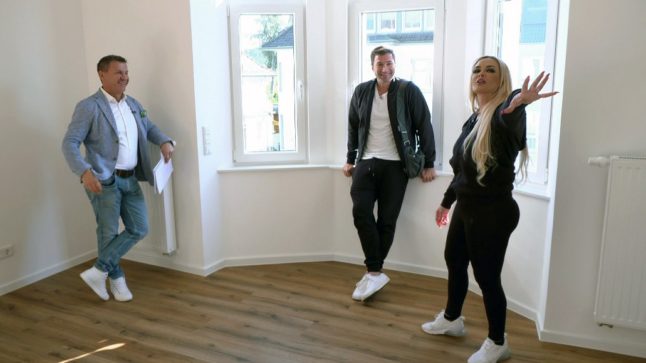After years of soaring prices in Germany’s property market, the turnaround has been swift and painful.
According to data from the Federal Statistical Office (Destatis), residential property prices fell by an average of 10.2 percent in the third quarter compared to the same period last year – the sharpest decline since the time series began in 2000.
Both in cities and rural regions, the drop in prices seen in the first two quarters of the year continued – though the price of flats fell less dramatically than houses.
In the metropolises of Berlin, Hamburg, Munich, Cologne, Frankfurt am Main, Stuttgart and Düsseldorf, detached and semi-detached houses became 12.7 percent cheaper in the third quarter, while buyers had to pay an average of 9.1 per cent less for flats than a year earlier.
In sparsely populated rural districts, prices for detached and semi-detached houses fell by 12.4 percent, while apartments were 5.6 percent cheaper year-on-year.
READ ALSO: Where are property prices in Germany falling the fastest?
Compared to the second quarter, residential properties became 1.4 per cent cheaper, Destatis announced on Friday. The news marks the first year-on-year drop in prices since 2010.
The main reason for the fall in prices is the sharp rise in interest rates, which have made loans more expensive, as well as high construction costs.
Many people can no longer or no longer want to afford their own four walls, while banks are struggling to sell mortgages at the current eye-watering rates.
This is in spite of the fact that demand for housing remains high, not least due to the high level of immigration in Germany and lanquid house-building rates.
On Thursday, Housing Minister Klara Geywitz announced that the government would once again miss its building target of 400,000 new homes per year, with 270,000 newbuilds expected in 2023 and around 265,000 expected in 2024.
READ ALSO: What will happen to the German property market in 2024?
‘Speculative price bubble’
The decline in the third quarter marks the first price fall in the current year since 2010, when the property boom began. Major cities such as Berlin, Hamburg and Munich are particularly affected, according to an analysis published on Wednesday by the German Institute for Economic Research (DIW).
The DIW calculations show that the road to home ownership remains rocky for buyers.
Despite the declines of recent quarters, property is still much more expensive than at the start of the boom: prices for detached and terraced houses doubled between 2010 and 2023, according to the researchers.
Rents rose much less during this period, by a total of 53 percent. Buying an apartment in major cities currently costs as much as 27 annual rents, compared to 28 annual rents last year.
READ ALSO: Why renting is still cheaper than buying in Germany
“Until 2022, there was a speculative price bubble in Germany, one of the biggest in the last 50 years,” said DIW study author Konstantin Kholodilin. “Since then, prices have been falling. The bubble has burst.”



 Please whitelist us to continue reading.
Please whitelist us to continue reading.
Member comments